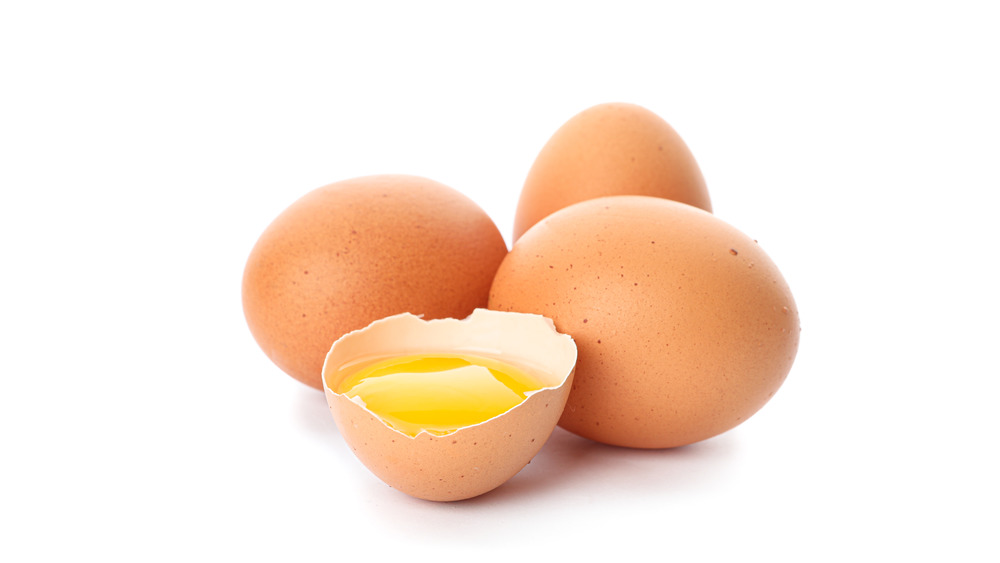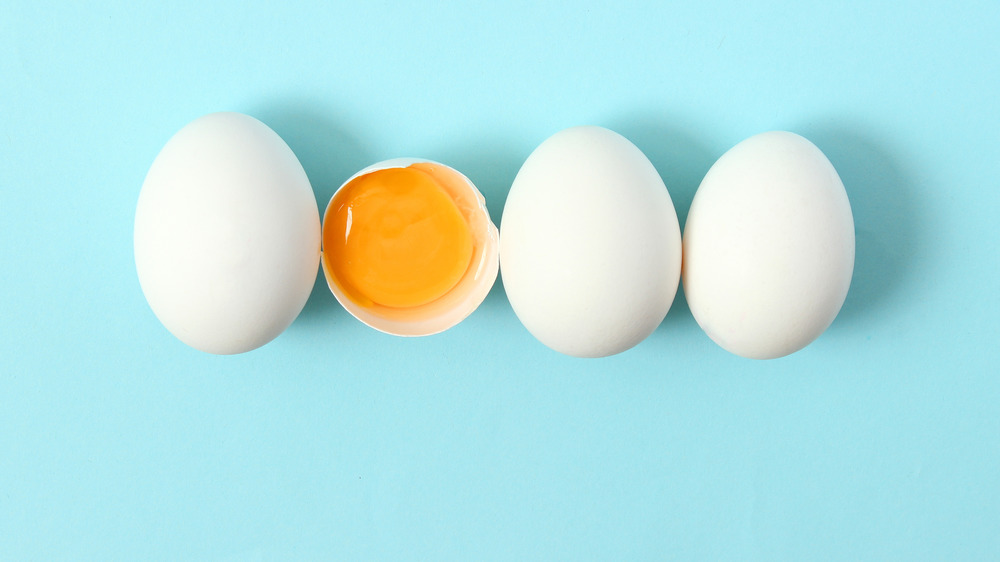Why You Never Want To Freeze Cooked Egg Whites
Eggs, especially egg whites, are an incredibly nutritious option for a meal that's not too worrisome or stressful to make but delicious at the same time. According to Healthline, there are plenty of benefits associated with consuming eggs, including the potential to fight heart disease and reduce the risk of stroke. It also helps that eggs are a good source of protein, as well as other nutrients, such as Vitamin B2, Vitamin A, phosphorus, and more.
Moreover, you can consume eggs in a variety of ways based on your preferences. You could quickly prepare a fluffy omelette with cheese or have boiled egg whites with plenty of spices for a super convenient snack. Or add eggs to a grilled cheese sandwich for extra nutrition. When it comes to storing your egg whites, though, there are some things that you simply must not do. Freezing your eggs whites, for example. Why? Keep reading for all the details.
If you freeze your egg whites, the results may not be ideal
The problem with freezing cooked egg whites is that they simply will not taste as good as they would when fresh and will be less than satisfactory in terms of texture. According to Healthline, when it comes to boiled eggs, a common problem for many is the fact that they are forced to deal with rubbery egg whites after thawing them. Ugh. Raw eggs and uncooked egg whites, on the other hand, are a relatively safe bet and will not cause any trouble in terms of taste, texture, or flavor.
A Redditor lamented about freezing burritos with egg whites and being displeased with the results after thawing the dish, explaining that the egg whites were rubbery and mediocre. A smart commenter had simple, but honest advice to offer for next time. They wrote, "That happens to cooked egg whites. You shouldn't freeze them. Just don't use cooked whites next time." Lesson learned!

